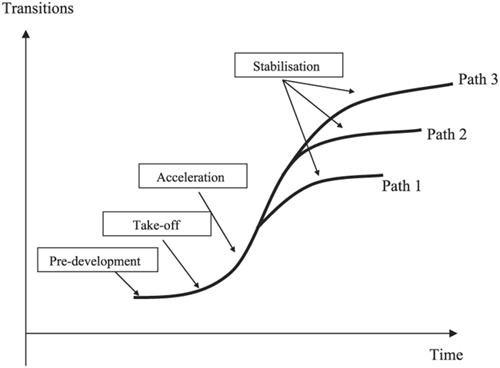Nature abhors a vacuum. So ours has been filled to the brim with noise.
It is interesting in a tangential way that this excellent debut album was released during the same month that Les Paul died. When obituaries flooded out into the broadsheet newspapers recently they seemed to obsess over one thing: the fact that the 94-year-old was (probably) one of the first to attach an electric pick-up to a guitar, thus making the whole rock & roll thing not just possible but in fact probable. (If you build it, they will rock.) This was a notable point of origin but focusing solely on it is an extreme act of rockism; of more importance is the fact that he helped to redefine and redesign and refine how music was recorded. Before Paul there were just live recordings transferred to wax cylinder, 78 rpm shellac or early 33 rpm albums (as mentioned on this site in John Tatlock’s recent feature on Les Paul.)
When he was presented with the magnetaphone recording device which had been developed from technology discovered amongst the war booty recovered from Nazi Germany in 1945 he realised the potential contained within. American spooks had marvelled at German resources when listening in to broadcasts from Berlin, the centre of the short-lived fascist empire. Hitler had the means to have a full concert orchestra playing symphonies through the night — every night! There was no reason of course for them to realise or suspect that German scientists had invented the concept of magnetic tape (as discussed in our recent Tome On The Range interview with Travis Elborough.) Paul added a fourth head to the machine that allowed multi-tracked recording: you could play the tape while recording more sound onto it. And so the modern concept of multi-track recording was invented; but more significantly, one of the first things he used the device to do — as a primitive sampler of sorts — was to multi-track his and his wife’s voices.

W.W. Rostow’s Model Of Economic Take Off
The electrically amplified guitar to the sampler. These two technological innovations have clearly demarcated a period of intense revolution in the production of sound, from rock music to acid house and electronica. If you take the history of popular music as a graph it very much resembles W.W. Rostow’s Model Of Economic Take Off. Prior to the electric guitar [take off], popular music (folk, jazz, skiffle etc) is relatively limited in the palette of sounds it can choose from [pre-development]. Then there is a period of steep increase in sonic development [acceleration] until cheap store-bought samplers become available, which, in theory, eventually makes the production of any kind of sound possible within the realms of pop music production [stabilization].
It’s no surprise that most post jungle music movements have been prefaced with the word ‘new’.
This is the kind of age we live in now — there will be no totally new revolution in music and to search for one is counterproductive. To end up with one we would need new technology and as we can pretty much manipulate sound in any way we please already, it’s hard to imagine how new technology would help. Instead we live in an age (which is just as exciting in its own way) of recontextualisation and refinement.
Freedom from the shackles of fashion is there if we wish to take it.
The XX are a band perfect for this age. A four piece of 19-year-olds (yes, as was pointed out to me on a message board recently, this means they were born in the 1990s) from London; they formed at the quasi-famous Elliot School, whose music department has also been responsible for anonymous dubstep wunderkind Burial, DIY house/indie geek party starters Hot Chip and electronica rave/chill solo artist Keiran Hebden (aka Four Tet). In fact joint front-people Romy Madley Croft (vocals/guitar) and Oliver Sim (vocals/bass) actually met at primary school, which would explain something of the quiet chemistry in the group. Making up the group are Baria Quereshi (guitars) and Jamie Smith (beats/electronics). Their sound is formed round the twanging, warm reverberations of the Les Paul semi-acoustic guitar of early R & B and the futuristic sub bass bleeps and harsh drum sounds of recent R & B, and all of the acres — all of the decades — of echoing, aching space in between.
Of course, conceptually tight as this is, it is just a concept. Luckily for us it is watertight and functional as well. There is a link to that dream inhabiting master David Lynch if you wish to infer it. The director juxtaposes contradictory music to create disassociation. Twanging guitars mixed with ominous sonic rumbles. It is probably not a coincidence, I would say, how much the song ‘Infinity’ sounds like Chris Isaak’s ‘Wicked Game’ which was used to such great effect during Wild At Heart.
Much has been made of how this band have equal love for classic alternative/indie such as The Pixies and New Order and modern R & B such as Aaliyah and Rhianna. Of course, this doesn’t actually mean they sound like any of these things mashed together. That would be awful. Instead they have achieved that most noble of things for a band. They sound like themselves and prove that even though all the sounds have been synthesized and manufactured, creatively the game is still wide open for the taking.
Read Hazel Sheffield’s interview with The XX
Read Petra Davis’s review of The XX debut album
With thanks to Edward J. Devlin



